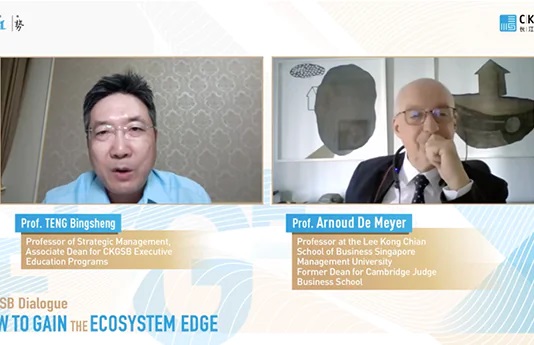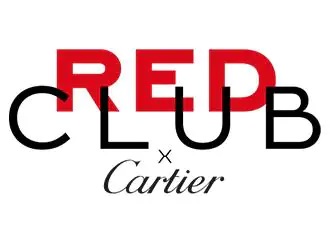
Stuart Diamond, author of Getting More, on the negotiation strategies that will help you seal the deal—and achieve much more.
Whether it is getting a salary raise at work or deciding on the terms of a joint venture, life is all about negotiations. Stuart Diamond, a professor at Wharton School of Business and author of the bestselling Getting More, believes that a lot of the negotiation tactics we often use are counterproductive. He says that the use of power, logic and strategies like win-win, good-cop bad-cop, for instance, fail to create the desired impact, and negotiators must instead focus more on perceptions and emotions.
Diamond, who is also Google’s Principal Negotiation Instructor and a Pulitzer Prize winning journalist in his earlier career as a reporter with The New York Times, shared his ideas with CKGSB Knowledge during a recent visit to Beijing.
Q. Much has been said on the topic of negotiations. In what ways are your ideas different from your peers in the field?

A. We focus more on perceptions and emotions, not on power, leverage and logic. Power, leverage and logic are based on research from the 1970s, in which people use power over other people. It gets other people angry. It doesn’t get them to invest in each other. It doesn’t add a lot of value.
Instead, if you focus on perceptions and emotions, you find a better starting point. If you value other people, they would go along with you. In fact you get four times as much value. We were able to prove that over a period of years, beginning in the 1990s.
Q. What is the insight here when you talk of emotions versus power? Why is that emotions are more effective?
A. When you exert power over somebody, they get angry and emotional. To exert power over them [means not valuing their emotions], whereas if you value their emotions, they are more grateful. That’s how you deal with it. People are emotional individuals. They have their own series of perceptions. Most of the time, people are pushing other people to do what they want instead of saying, “What are your needs that I can meet? In return, you’ll meet mine.” It’s a much different way of interaction.
Q. You differentiate between the ‘conflict model’ of negotiation and the ‘collaborative model’. What are the key differences between the two approaches? Why is one approach more effective than the other?
A. The conflict model is based on pushing people. There is not a lot of trust involved. It wastes time. Conflict wastes time. [In] the collaborative model, people invest in each other and they think about how to make the pie bigger. So it’s much different. In fact, the collaborative model generates a lot more value while the conflict model eats value.
Q. In your book, you talk of this idea of making “emotional payments” and “trading”. Why is that important and how can “payments” be used tactically? Can you also give us some examples of how this works?
A. “Emotional payment” is valuing somebody else’s emotions whatever they happen to be. In other words, you are right to express yourself; you are right to do what you feel is the right thing for you to do. For example, which is better: calling Putin a Hitler or saying you are right to be concerned about Russian speakers? The second one will get us to the table, whether I agree with him or not. So emotional payment gets someone to the table. Emotional paying is when my child is upset and crying, and I say, “It’s your right to cry. Crying is a good thing to do.” The child will then open up to me. It’s the way of looking at the world from their point of view.
When she does that, life is about what you trade. You can trade anything. You can trade a discount for helping somebody’s daughter with their homework. You can trade a recommendation for a restaurant, for a better relationship.
Money was invented because it was too hard to carry cows around. But it is still only a proxy for human needs. When you focus on human needs, you get more from people.
So the real question is: how do I meet your needs enough so that you meet mine? That’s what essentially the model is.
[Watch video below]
Q. Do hardball tactics have a role to play in negotiations at all?
A. There is no room for hardball tactics. There is room for dealing with hardballers. If someone is a hardballer, I would say: “Why are you a hardballer? Did you want my cooperation? Did you want me to give you the best that I have? How is beating me up getting you there?”
The second thing is to find their standards. Find the thing that they proclaim for themselves that they do and show them how they are contradicting to their standards, what statements have they heavily contradicted. Do they have certain practices, whether it is employment practices, practices of dealing with others that are unfair?
One of the best hard bargainers in the world in the history was Gandhi. Gandhi took the jewel in the crown from the British Empire: India. He said, “England said it was the world’s most civilized country. How does that compare with the killing of innocent women and children in India?” England could not withstand the way the world opinioned and lost India. That’s an example of using their standards with hard bargainers.
Q. What role does power or perceived power and reputation play in negotiations? For instance, if a superpower like the US or China were to negotiate with a smaller country, what stand is either side likely to take? And what is right or wrong about that?
A. I think you’ve really touched the nerve there. I very much disagree with the notion that there is a Chinese or American way of negotiating. There are hundreds of millions people in each place. Negotiations are conducted by individuals. It doesn’t matter what the macro culture is. What matters [is] when you and I talk about together, can we make a connection? Do we value our families? Do we care about making tomorrow better? It’s that connection that matters.
Reagan’s connection with Gorbachev was so good that the Soviet Union ceased to exist, for example, and the Cold War ended. That had nothing at all to deal with Americans vs. Russians. That was two individuals talking to one another. That’s a pretty good model of what should go on here. So the connection that Obama can make with Chinese leaders is much more important than any reputation that either country has. The reputation that any individual businessman or women can make with their counterparts in China and the US dwarfs any kind of hard bargainer power or the reputation that one might have.
Q. Do you think culture may play a role at negotiation? For instance, in China, people may sit at the same table but with different thoughts on their mind.
A. That’s not culture but individuals. It is individuals who have different thoughts. We’ve done lots of cultural studies. We found that micro culture is more important than macro culture. I said to Google Women in a speech that I gave two months ago [that] there were probably 15 micro cultures in the room more important than gender. I’m the mother of a small child. I’d like to play golf, I’d like to go to the theater… that’s when you make the connection. So it’s one by one, individual by individual. Again, macro culture is interesting for social, political and economic studies. They are irrelevant one on one. Family is much more important than macro culture.
Here is something interesting. I gave a speech at the World Economic Forum in Seoul two years ago. It was on women and leadership. There were thousands of participants including three country presidents who were women. I said to them, “Alright, take a piece of paper and write down where you get your identity from.” Thirty seconds passed and I asked, “How many of you have written down the word ‘women’, raise your hand.” No hand went up. A thousand women in a conference on gender… that is because it was much more personal: “I’m a mother of a small child”, “I like golf”, “I like to go to theaters.” Those are the connections you have to make to make the world’s best deals. And I say to women, “Don’t let people stereotype you”. I say the same thing to Americans, Chinese, African Americans and baseball players.



















